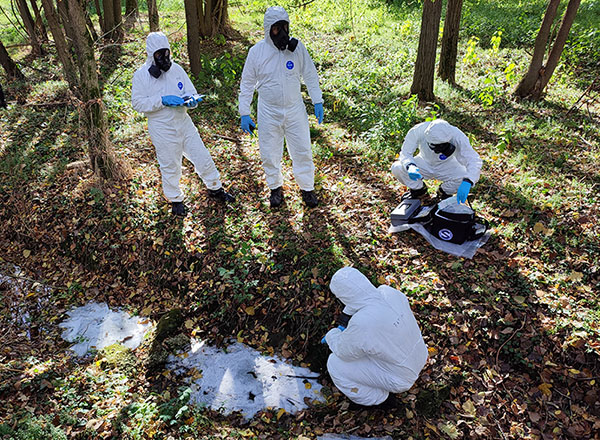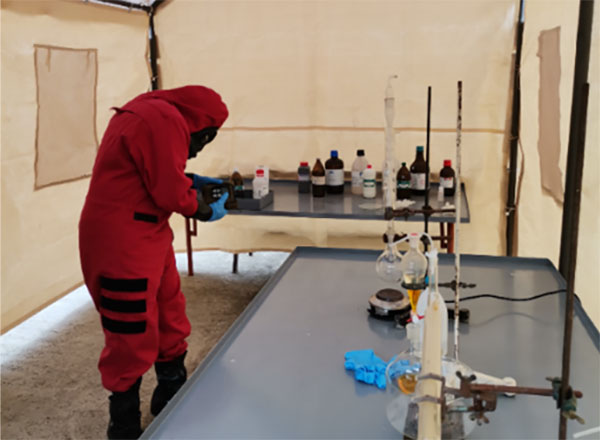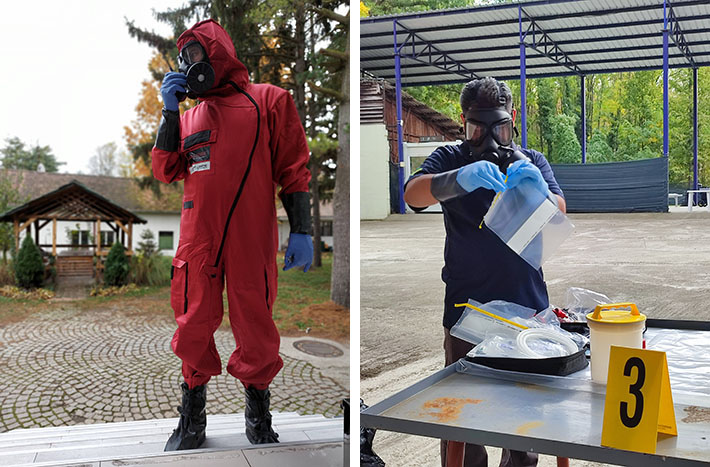About the Center
The Center for CBRN Forensics and Training at Vinča Institute of Nuclear Sciences, National Institute of the Republic of Serbia, was established in 2016. It represents a unique civilian platform in Serbia, specializing in detection, decontamination, and training in the area of Chemical, Biological, Radiological, and Nuclear (CBRN) threats.


We provide top-level training to domestic and international professionals from various institutions, including civil protection agencies, firefighting services, healthcare workers, and members of the military and police. The Center is focused on highly specialized training, with particular emphasis on civilian and security structures. Internationally recognized training programs and courses are organized for members of foreign armed forces and civilian institutions, offering the opportunity to obtain globally recognized certifications.
Our trainees have access to state-of-the-art laboratories, leading experts, and specialized equipment, while the practical portion of the training includes fieldwork through real-life CBRN scenario simulations. With the support of highly qualified experts, modern equipment, and comprehensive logistical backing from the Vinča Institute, the Center for CBRN Forensics and Training offers training at the highest standards. We enable our participants to acquire advanced knowledge and essential skills needed to effectively face complex challenges and threats in the field of CBRN safety and security.
As part of its activities, the Center for CBRN Forensics and Training maintains close cooperation with scientific and educational institutions both domestically and internationally. This collaboration promotes joint research projects, invited lectures from researchers, and the organization of student visits to the Vinča Institute. Special emphasis is placed on providing opportunities for students to conduct experiments for their master’s and specialist theses, as well as to engage in practical training as part of joint projects. The collaborative research and educational activities contribute to the development of scientific and technological solutions in the field of CBRN safety and protection.




